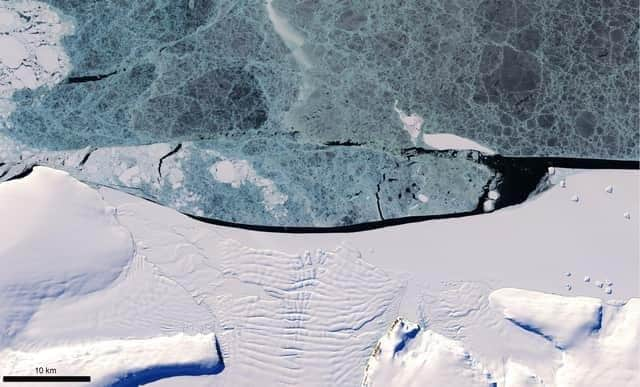Melting Antarctic ice causing slowdown in deep ocean currents that could have disastrous effect on climate
This article contains affiliate links. We may earn a small commission on items purchased through this article, but that does not affect our editorial judgement.
A team of Australian scientists found that the deep-water flows which drive ocean currents could decline by 40 per cent by 2050, drastically impacting the currents that carry vital heat, oxygen, carbon and nutrients around the globe.
As well as impacting life in the ocean, a slowdown in the North Atlantic current could cause Europe to become colder.
Advertisement
Hide AdAdvertisement
Hide AdThe study, published in the journal Nature, warned that the slowdown of currents could reduce the ocean's ability to absorb carbon dioxide from the atmosphere as well impacting wildlife.


The report found that the downwards movement of cold, dense saltwater towards the sea bed near Antarctica was impacting ocean currents with fresh water from the ice cap melting resulting in sea water becoming less salty and dense, thus slowing the downwards movement, causing impacting to deep ocean currents, or "overturnings", in the northern and southern hemispheres that have been relatively stable for thousands of years.
Scientists say that the implications could have significant impact on the climate.
Study lead Professor Matthew England said: "Our modelling shows that if global carbon emissions continue at the current rate, then the Antarctic overturning will slow by more than 40 per cent in the next 30 years - and on a trajectory that looks headed towards collapse."
The revelations come following a 2018 Atlas Study which found the Atlantic Ocean circulation system was weaker than it had been for more than 1,000 years, and had changed significantly in the past 150 with the report suggesting changes to the conveyor-belt-like Atlantic Meridional Overturning Circulation (Amoc) could cool the ocean and north-west Europe, and affect deep-sea ecosystems.
The report also highlighted how the slowdown would affect the ocean's ability to absorb carbon dioxide from the atmosphere.
Dr Adele Morrison, who contributed to the report, explained that as ocean circulation slows down, water on the surface quickly reaches its carbon-absorbing capacity and is not then replaced by non carbon-saturated water from greater depths.
"If the oceans had lungs, this would be one of them," Prof England, an oceanographer at Sydney's University of New South Wales, told a news briefing.
Advertisement
Hide AdAdvertisement
Hide AdDr Morrison also warned that said a slowdown of the southern overturning could have an impact on marine ecosystems and Antarctica itself.
"Overturning brings up nutrients that have sunk down to the bottom when organisms die… to resupply nutrients for the global ecosystem and fisheries," she told the BBC.
"The other larger implication that it could have is a feedback on how much of Antarctica melts in the future. It opens a pathway for warmer waters which could cause increased melt, which would be a further feedback, putting more meltwater into the ocean and slowing down circulation even more," she added.
Results suggest deep water circulation in the Antarctic could slow at twice the rate of decline in the North Atlantic.
The effect of Antarctic meltwater on ocean currents has not yet been factored in to IPCC models on climate change, but it is going to be "considerable", Prof England said.